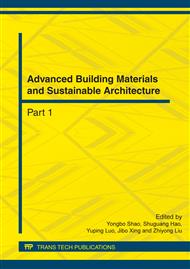p.2721
p.2725
p.2729
p.2734
p.2739
p.2745
p.2749
p.2754
p.2759
Study of Memory Mechanism Based on Immune System in Construction Enterprises
Abstract:
This paper probes the construction enterprises’ stability and adaptability from the perspective of immunological memory by the research of immune system in biological fields, and separates the mechanism of immune memory into three processes: study memory, forgetting memory, and copy memory. The study memory is the most important process in corporate memory's forming, existing and application. The three processes throughout the memory mechanism and alternate, which makes construction enterprise memory continuously updated.
Info:
Periodical:
Pages:
2739-2744
Citation:
Online since:
May 2012
Keywords:
Price:
Сopyright:
© 2012 Trans Tech Publications Ltd. All Rights Reserved
Share:
Citation:


